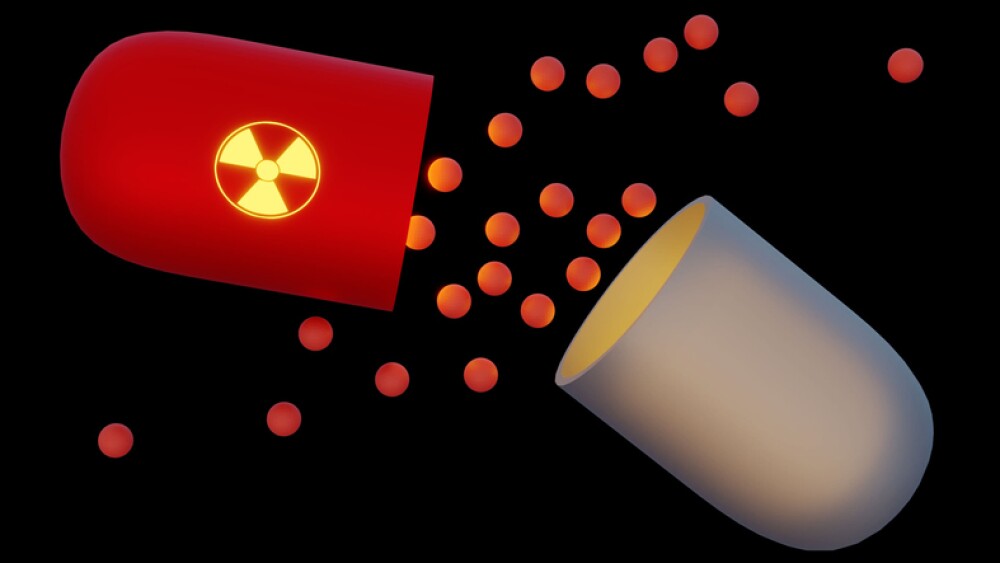This study will evaluate HCW9302 in patients with moderate to severe alopecia areata
MIRAMAR, Fla., Feb. 03, 2025 (GLOBE NEWSWIRE) -- HCW Biologics Inc. (“HCWB” or the “Company”) (NASDAQ: HCWB), a U.S.-based clinical-stage biopharmaceutical company focused on discovering and developing innovative immunotherapies to extend healthspan by targeting the link between chronic inflammation and disease, today announced that it has received clearance of its Investigational New Drug Application (“IND”) from the U.S. Food and Drug Administration (“FDA”) to initiate a first-in-human Phase 1 dose escalation clinical trial to evaluate one of its lead drug candidates, HCW9302, in patients with moderate-to-severe alopecia areata, a common autoimmune disease in humans that currently has no curative FDA approved treatments. Alopecia areata causes sudden hair loss and can have a significant negative impact on patients’ quality of life and psychological health. HCW9302 is an injectable, first-in-kind interleukin 2 (“IL-2”) fusion protein complex constructed using the Company’s proprietary TOBI platform technology. Its mechanism of action involves binding to IL-2αβγ receptors predominantly expressed on regulatory T (“Treg”) cells, thereby activating and expanding Treg cells that can suppress unwanted immune and inflammatory responses.
Chronic inflammation is believed to be a significant contributing factor in many diseases and conditions including those that have a major impact on quality-of-life but are not life-threatening. In multiple relevant preclinical models, HCW9302 has shown efficacy in treating autoimmune diseases at well-tolerated dose levels by activating and expanding Treg cells through subcutaneous injections. Protein-based therapies, whether as direct inhibitors or immunomodulatory agents, have revolutionized the management of autoimmune and inflammatory conditions. The Company believes that HCW9302, with its subcutaneous injectable approach, has the potential to activate and expand Treg cells in patients, reducing inflammation, while minimizing the risk of broad immunosuppression.
Dr. Hing C. Wong, Founder and CEO of HCW Biologics, commented, “The FDA’s clearance to initiate our first-in-human clinical trial for HCW9302 brings us one step closer to advancing a potentially transformative immunotherapeutic treatment of autoimmune diseases. This trial is a milestone for our Company, and the beginning of clinical development of treatments for quality-of-life indications. While not life-threatening, alopecia areata has no cure. Existing off-label treatments may provide some relief of symptoms, but there are often dangerous side effects. For those who suffer from this disease, it can negatively impact their quality-of-life.” Dr. Wong continued, “The goal of this initial trial is to establish the safe dose of HCW9302 that effectively increases Treg cells activity in patients. Once we achieve this objective, we will rapidly expand clinical development of HCW9302 in Phase 2 studies in patients with other autoimmune diseases and inflammatory conditions, including other dermatological conditions, graft rejection, arthrosclerosis, diabetes, and neurodegenerative diseases where HCW9302 has been shown to have activity in relevant animal models.”
About Alopecia Areata:
Alopecia areata (“AA”) is one of the most prevalent autoimmune diseases in the world, affecting approximately 1 in 1,000 people, with a lifetime incidence of 2% worldwide, or 160 million people. According to the National Alopecia Areata Foundation (NAAF), about 7 million people in the United States have alopecia areata. The condition primarily affects individuals under the age of 30, occurring at similar rates in both males and females. AA is characterized by hair loss in localized areas, the entire scalp, or, in some cases, the whole body. It occurs when the immune system mistakenly attacks hair follicles, leading to hair loss without causing permanent damage to the follicles. Patients often experience recurring episodes of hair loss throughout their lives. Existing treatments, such as corticosteroids, immunotherapy, Janus kinase inhibitors, and topical solutions, focus on managing the severity and duration of episodes of hair loss. However, these therapies primarily address symptoms rather than providing a cure or consistent, long-term hair regrowth. Currently, there is no cure for alopecia areata.
About HCW Biologics:
HCW Biologics Inc. (NASDAQ: HCWB) is a clinical-stage biopharmaceutical company developing proprietary immunotherapies to treat diseases promoted by chronic inflammation, especially age-related and senescence-associated diseases. The Company’s immunotherapeutics represent a new class of drug that it believes have the potential to fundamentally change the treatment of cancer and many other diseases and conditions that are promoted by chronic inflammation — and in doing so, improve patients’ quality of life and possibly extend longevity. Chronic inflammation, including inflammaging, is believed to be a significant contributing factor to the cause for senescence-associated diseases and conditions that diminish healthspan, including many types of cancer, autoimmune diseases, and neurodegenerative diseases, as well as indications that impact quality-of-life that are not life-threatening. The Company’s lead product candidate, HCW9302, was developed using the Company’s legacy TOBI™ (Tissue factOr-Based fusIon) platform. The Company has created another drug discovery technology, the TRBC platform, which is not based on Tissue Factor. The TRBC platform has the capability to construct immunotherapeutics that not only activate and target immune responses but are also equipped with receptors that specifically target cancerous or infected cells. This platform is such a versatile scaffold that it enables the creation of multiple classes of immunotherapeutic compounds: Class I: Multi-Functional Immune Cell Stimulators; Class II: Second-Generation Immune Checkpoint Inhibitors; Class III: Multi-Specific Targeting Fusions and Enhanced Immune Cell Engagers. These novel immunotherapeutics can be used to treat a wide range of disease indications, including oncology, autoimmune diseases, and improving quality of life conditions. The Company has constructed over 30 molecules using the TRBC platform, including HCW11-002, HCW11-018 and HCW11-027. Further preclinical evaluation studies are currently being conducted for these three molecules the Company has selected based on promising early data. The Company has two licensing programs in which it has licensed exclusive rights for some of its proprietary molecules. See the Company Pipeline at https://hcwbiologics.com/pipeline/.
Forward Looking Statements:
Statements in this press release contain “forward-looking statements” that are subject to substantial risks and uncertainties. These statements are made under the “safe harbor” provisions of the U.S. Private Securities Litigation Reform Act of 1995. Forward-looking statements contained in this press release may be identified by the use of words such as “anticipate,” “expect,” “believe,” “will,” “may,” “should,” “estimate,” “project,” “outlook,” “forecast” or other similar words and include, the Company’s ability to develop new immunotherapeutic treatments for auto-immune indications; the Company’s ability to enter into agreements with clinical sites to participate in the study; the successful initiation of a clinical trial; the Company’s ability to enroll the required number of patients for the study; that the clinical study will proceed with no adverse effects to any patients participating in the trial; that the study will not be put on a clinical hold by the FDA for any reason; and that the clinical study will reach its endpoints successfully; the efficacy of HCW9302 for autoimmune conditions; and the ability of HCW9302 to activate and regulate Treg cells in patients. Forward-looking statements are based on the Company’s current expectations and are subject to inherent uncertainties, risks and assumptions that are difficult to predict. Further, certain forward-looking statements are based on assumptions as to future events that may not prove to be accurate. Factors that could cause actual results to differ include, but are not limited to, the risks and uncertainties that are described in the section titled “Risk Factors” in the annual report on Form 10-K/A filed with the United States Securities and Exchange Commission (the “SEC”) on May 15, 2024, the latest Form 10-Q filed with the SEC on November 14, 2024, and in other filings filed from time to time with the SEC.
Company Contact:
Peter Rhode, PhD.
Vice President of Clinical Operations and Chief Scientific Officer
HCW Biologics Inc.
peterrhode@hcwbiologics.com





